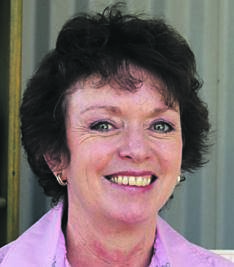
A registered nutritionist has questioned the current school curriculum on nutrition. Carol Browne says the Curriculum Assessment Policy Statements (Caps) is irrelevant and contains inaccurate information on education on nutrition.
Three years ago, Browne proposed to education authorities that the curriculum, which does not teach pupils about teeth decay, obesity, diabetes, kwashiorkor and rickets, should be scrapped, but her pleas were ignored. She refers to these issues in her research as public health problems.
This week, Browne told City Press that the content in the Caps pupil-teacher support materials, or textbooks, should be corrected.
She said she raised her concerns with the department of basic education’s director-general Mathanzima Mweli in 2016, but her proposal was ignored.
In her letter to Mweli, which City Press has seen, she explained that she had presented a research paper at the Association for Dietetics in SA and the Nutrition Society of SA biennial congress that year.
In her study, Browne said the current syllabus on nutrition was unlikely to lead to improved nutrition knowledge, attitude and practice among schoolchildren and their families.
Browne told Mweli that eminent local nutrition researchers supported the need for school-based nutrition education as part of the overall nutrition communication strategy.
“However, the analysis I did of nutrition content in Caps and in the learning and teaching support materials shows that this will not occur based on current content.
“In fact, children would be better off at present if no nutrition was taught, rather than being taught what they are,” Browne said.
She had examined the content of seven Grade 5 Life Skills textbooks, eight Grade 6 Natural Science and two Grade 10 Consumer Sciences books.
Her findings were that the content was:
. Fact-based, but did not encourage behavioural change;
. Nutrient-based rather than food-based (details of types of healthy foods);
. Did not progress through the grades and across subjects in a spiral manner;
. Did not give teachers background information on nutrition to enable them to accurately assess the work done by children;
. Inaccurate and irrelevant;
. Contained a number of food guides but the national food guide, which was prepared following the methods compiled by the World Health Organisation (WHO) and the Food and Agriculture Organisation (FAO), was not used at all; and
. The food guides used do not support the food-based dietary guidelines.
She said nutrition education was not only about information on nutrients, but was supposed to teach skills and self-efficacy to apply these skills, and to understand and apply guidelines for healthy eating.
The national guidelines for healthy eating, she said, were prepared according to the food-based dietary guidance methods of the WHO and the FAO.
These guidelines were supported by a visual graphic and had locally appropriate foods for healthy eating.
In her email to Mweli, Browne attached the abstract of her presentation, which details that nutrition education is now recognised as more than just the communication of facts, but that it rather requires development of skills that will enable behaviour change.
Browne said previous studies have recommended that the integrated school health programme should ensure nutrition education was taught at schools.
She said the authors of a 2013 study on this did not specify that the Caps materials should be corrected, but showed how many children took money to school, but, due to scarcity of healthy food, used the cash to buy food lacking in nutrients that would possibly promote diseases.
Browne said the Caps content could be tweaked to eliminate the identified problems.
Government’s school feeding scheme, the national school nutrition programme, was supposed to offer education on nutrition, but government had clearly failed 100% in ensuring that, she said.
The department of basic education had not responded at the time of going to print, despite acknowledging receipt of questions from City Press.
TALK TO US
Do you think government pays enough attention to the nutritional needs of our children? How do your children feel about what they learn about food?
SMS us on 35697 using the keyword FOOD and tell us what you think. Please include your name and province. SMSes cost R1.50. By participating, you agree to receive occasional marketing material
 |
| ||||||||||||
| |||||||||||||




 Publications
Publications
 Partners
Partners








